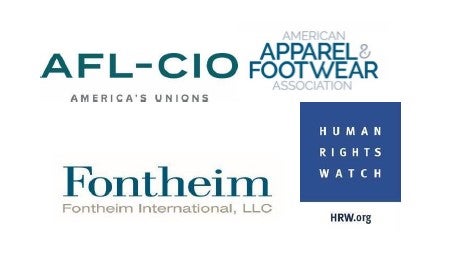Letter to Biden Administration: Use G20 to Advance Social Protection

As world leaders prepare for the G20 Summit, we write to press the Biden Administration to use this platform as an opportunity to advance proposals for increased financing and coordination of social protection through an international Global Social Protection Fund. The international community has increasingly recognized the importance of social protection; it is an internationally recognized human right, it is enshrined in international labor standards, and the commitment to extend social protection is part of the SDGs. By providing critical support to people who are facing situations such as unemployment, sickness, maternity, widowhood or old age, social protection has broad benefits for people and their communities. It supports and raises people’s incomes and living standards and prevents poverty, social insecurity and social exclusion. In addition to reducing inequalities and promoting social cohesion, social protection has demonstrated benefits for businesses and the wider economy as well. Investment in social protection and essential services – including health, education and care services – has positive effects on skills, employability, productivity and overall firm-level performance. Moreover, social protection has proven to be a precondition for building resilience – against this crisis and against future crises. Whether an economic crisis, health crisis, or a climate crisis, social protection plays a critical role in maintaining jobs and supporting workers’ incomes. Despite the benefits of social protection, less than a third of the world’s population is covered by comprehensive social protection systems and less than half has access to at least one social protection benefit. This leaves the vast majority of the world’s people unprotected in times of need, or from national or global economic shocks. Financial commitments to underpin extensions of social protection are critically lacking. While expanding social protection is economically feasible for the vast majority of wealthy countries, major financing gaps exist for the world’s poorest countries, inhibiting the extension of social protection systems worldwide.
The International Labour Organization (ILO) has estimated that the amount needed to finance social protection floors in the world’s lowest income countries would amount to around 78 billion USD. This amount represents roughly 16% of the collective GDP of the world’s lowest income countries, yet at the global level it represents less than 0.25% of the world’s GDP – highlighting the potential of global cooperation to support the financing of social protection. With your leadership, countries can better coordinate and help the world’s lowest income countries develop the fiscal space needed to develop and expand social protection systems. Currently, less than 0.7% of total ODA goes to social protection. Given its demonstrable contribution towards development, social protection must have greater priority when it comes to international development assistance. Additionally, we believe that a Global Social Protection Fund could lead to greater coordination and strengthened international financial and technical support for social protection.
The aim would be to develop adequate, comprehensive and sustainable social protection systems that directly benefit people.
The concept of such a fund has been endorsed by global leaders including Olivier de Schutter, the UN Special Rapporteur for Extreme Poverty and Human Rights, and we encourage you to use your authority to advance it further. If the Biden Administration is serious about leading the charge towards an equitable and comprehensive economic recovery and mitigate the extreme impacts of future crises, it should: ensure adequate social spending domestically; increase its ODA internationally; and endorse the proposal for a Global Social Protection Fund. To support the administration in advancing this effort through its international work and across government agencies, we are requesting a meeting with the administration following the G20 summit. We look forward to working together on these important issues.
Read the full article at the original website
